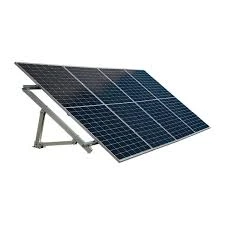solar panel lifetime efficiency
Understanding Solar Panel Lifetime Efficiency
As the world increasingly shifts towards renewable energy sources to combat climate change, solar power has emerged as a frontrunner. Solar panels, or photovoltaic (PV) cells, convert sunlight into electricity, providing a clean and sustainable energy solution. However, the efficiency and longevity of these panels are critical factors for consumers and manufacturers alike. In this article, we will explore the concept of solar panel lifetime efficiency, its importance, and how it affects the overall performance and viability of solar energy systems.
What is Solar Panel Efficiency?
Solar panel efficiency refers to the percentage of sunlight that a panel can convert into usable electricity. For instance, a solar panel with an efficiency rating of 20% means that it converts 20% of the solar energy hitting it into electrical energy. The efficiency of solar panels can vary significantly depending on various factors, including the type of solar technology used, the quality of the materials, and environmental conditions.
Types of Solar Panels
There are several types of solar panels, each with its own efficiency ratings
1. Monocrystalline Solar Panels These panels are made from a single crystal structure, which allows them to achieve efficiencies of around 15-22%. They are known for their space efficiency and longevity, making them a popular choice for residential installations.
2. Polycrystalline Solar Panels Made from multiple crystal fragments melted together, these panels typically have lower efficiencies, ranging from 13-18%. They are generally less expensive but require more space for the same energy output.
3. Thin-Film Solar Panels These panels are made from a variety of materials, including cadmium telluride and amorphous silicon. Their efficiency often ranges from 10-12%, but they are lightweight and flexible, making them suitable for specific applications.
Importance of Lifetime Efficiency
solar panel lifetime efficiency

The lifetime efficiency of solar panels is a measure of how their performance can change over time. While a panel's initial efficiency rating might be high, factors such as environmental degradation, temperature fluctuations, and physical wear can affect its long-term performance. On average, high-quality solar panels maintain around 80-90% of their efficiency after 25 years.
A panel’s lifetime efficiency not only affects its energy output but also its return on investment (ROI). Higher efficiency means more electricity generated over the panel's lifespan, reducing the payback period for homeowners and businesses alike. Moreover, advancements in solar technology continue to improve lifetime efficiencies, making solar energy a more attractive option in terms of both cost and sustainability.
Factors Affecting Solar Panel Efficiency
Several factors can influence the efficiency and longevity of solar panels
1. Quality of Materials Higher-quality materials are more resilient to weather extremes and typically have better performance over time.
2. Installation Angle and Location The angle at which panels are installed affects how much sunlight they receive. Additionally, geographic location plays a significant role; areas with more sunlight yield higher energy outputs.
3. Maintenance and Cleaning Dust, dirt, and debris can obstruct sunlight, reducing efficiency. Regular maintenance and cleaning can help sustain optimum performance.
4. Temperature While solar panels convert sunlight into electricity, excessive heat can reduce efficiency, emphasizing the need for thoughtful installation in hot climates.
Conclusion
As technology evolves, the efficiency and longevity of solar panels will undoubtedly improve, making renewable energy more accessible and effective. Understanding the concepts of solar panel lifetime efficiency is crucial for consumers considering solar installations, as it highlights the importance of selecting quality products, proper installation practices, and maintenance routines. By committing to these best practices, users can fully harness the benefits of solar energy, contributing to a sustainable future powered by clean energy.
-
Unlocking Energy Freedom with the Off Grid Solar InverterNewsJun.06,2025
-
Unlock More Solar Power with a High-Efficiency Bifacial Solar PanelNewsJun.06,2025
-
Power Your Future with High-Efficiency Monocrystalline Solar PanelsNewsJun.06,2025
-
Next-Gen Solar Power Starts with Micro Solar InvertersNewsJun.06,2025
-
Harnessing Peak Efficiency with the On Grid Solar InverterNewsJun.06,2025
-
Discover Unmatched Efficiency with the Latest String Solar InverterNewsJun.06,2025







